4 Holiday Dangers for Pets to Watch Out For
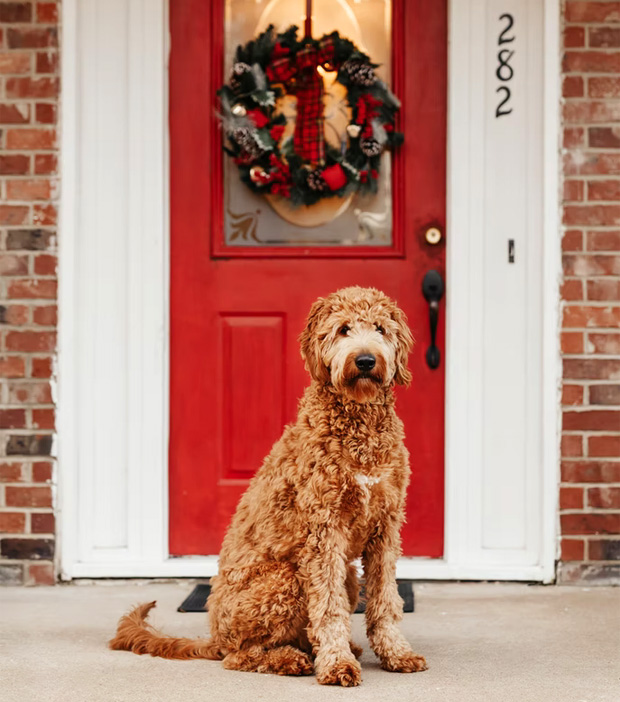
4 Holiday Dangers for Pets to Watch Out For
The holidays are a festive time for us and our four-legged companions. However, with all the activities and distractions, we can easily overlook potential hazards for our pets such as holiday decorations, unhealthy snacks, and toxic plants.
In case the worst happens and your furry friend needs to go to the veterinary emergency room during the holidays, having pet insurance can be of great help. The average pet insurance costs between $28 and $50 per month, and having the right policy can protect your bank account from hefty vet bills that can sometimes reach thousands of dollars.
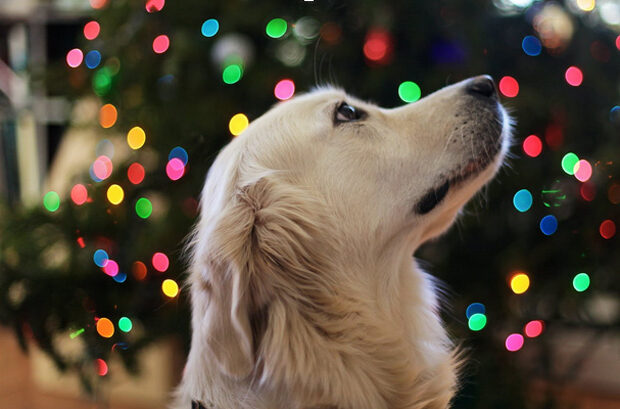
That being said, prevention is always better than cure, so in this post, we’re looking into 4 preventive measures that will help you protect your pets this holiday season.
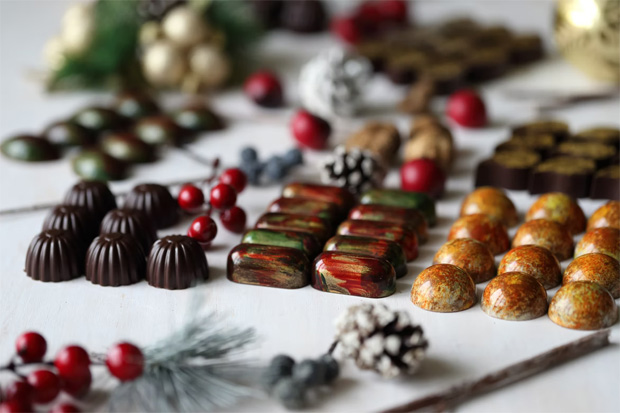
1 – Dangerous Foods
Some of the most popular holiday foods can be very dangerous or even fatal to cats and dogs. Here’s what to watch out for:
- Chocolate contains theobromine, a compound that is poisonous to dogs. If consumed in small amounts, chocolate can cause diarrhea and vomiting, whereas larger amounts can cause tremors, seizures, heart failure, and death.
- If you feel tempted to toss your pet a bone while cooking holiday meals, you should know that bones (both cooked and uncooked) are not safe for them to eat. They can easily break, leading to a number of issues such as broken teeth, constipation, gastrointestinal blockage, and peritonitis (an inflammation of the tissue that lines the pet’s abdomen resulting from punctures in the intestines or stomach).
- Candy-covered raisins, candied raisins found in fruit cake, and grapes can cause kidney failure in dogs.
- Many types of nuts (which can be found in many candies and cookies) should not be given to pets. For instance, pistachios and almonds can cause stomach upset or obstruct your pet’s throat, whereas moldy walnuts and macadamia nuts can be toxic, causing, vomiting, lethargy, loss of muscle control, and seizures.
- Keep your pets away from the raw cookie dough while making Christmas cookies. Ingestion of raw cookie dough can expand in the pet’s stomach resulting in obstruction.
- Be sure to keep alcoholic beverages away from your pet as they can cause incoordination, diarrhea, vomiting, drooling, weakness, shaking, and difficulty breathing. In more serious cases, coma and death can occur.
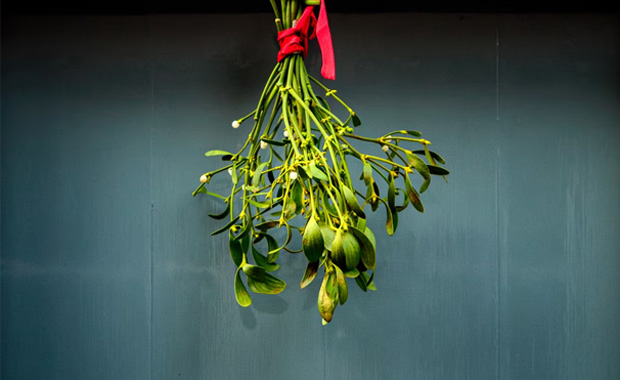
2 – Toxic Plants
Some plants that are commonly found in homes during the holiday season are toxic or even deadly to dogs and cats:
- Mistletoe can cause diarrhea, vomiting, difficulty breathing, hallucinations, erratic behavior, collapse, and even death when ingested.
- Holly can cause intense diarrhea, vomiting, and depression.
- Pine needles found in evergreen plants like Christmas trees can cause diarrhea, vomiting, oral irritation, trembling, lethargy, weakness, and trembling.
- Poinsettias, although widely thought to be toxic to household pets, are in fact low in toxicity and may cause irritation to the stomach, resulting in vomiting.
The list of plants that can harm your pet also includes amaryllis, azaleas, chrysanthemums, ivy, juniper, and lily.
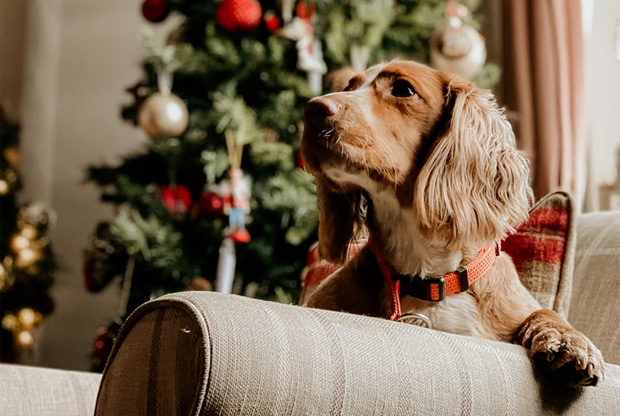
3 – Holiday, Ornaments, Tinsel, and Ribbons
Bright and colorful holiday ornaments can easily attract your pet’s attention. Be sure to place ornaments made of fragile materials (such as paper, glass, and aluminum) higher up on the Christmas tree. Your pet can chew and swallow such objects, and broken pieces that form sharp edges might lacerate its tongue, throat, and intestines going down and even cause choking.
Shiny, dangling tinsel is also very attractive to household pets, especially cats. However, ingested tinsel may twist and bunch inside the animal’s intestines, in which case immediate veterinary care is necessary.
Finally, be sure to discard any bows and ribbons wrapped around your gifts as soon as possible, so your curious pets won’t be tempted to chew or swallow them. If ingested, the ribbon can twist throughout your pet’s intestines, leading to emergency surgery or even death. In addition, avoid ‘decorating’ your pet with a ribbon around the neck as it could become a serious choking hazard.
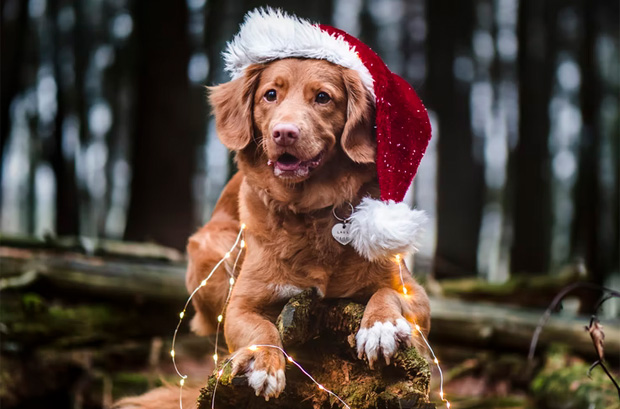
4 – Candles and Holiday Lighting
If you’re planning on displaying candles during the holidays, make sure they’re placed in a spot that your pets can’t reach. Not only can your pets burn themselves, but knocking over candles is a serious fire hazard.
Twinkling holiday lights are another holiday hazard to watch out for. If your cat or dog likes to chew electrical cords, they might suffer electrical shock, resulting in tongue lacerations or even death.
Final Thoughts
Before you start celebrating the holidays, take some time to take precautions and ensure that your home is safe for your pets. If you think your cat or dog has ingested something they were not supposed to, be sure to call your vet or an emergency animal hospital. Happy holidays!
Collaboration.




